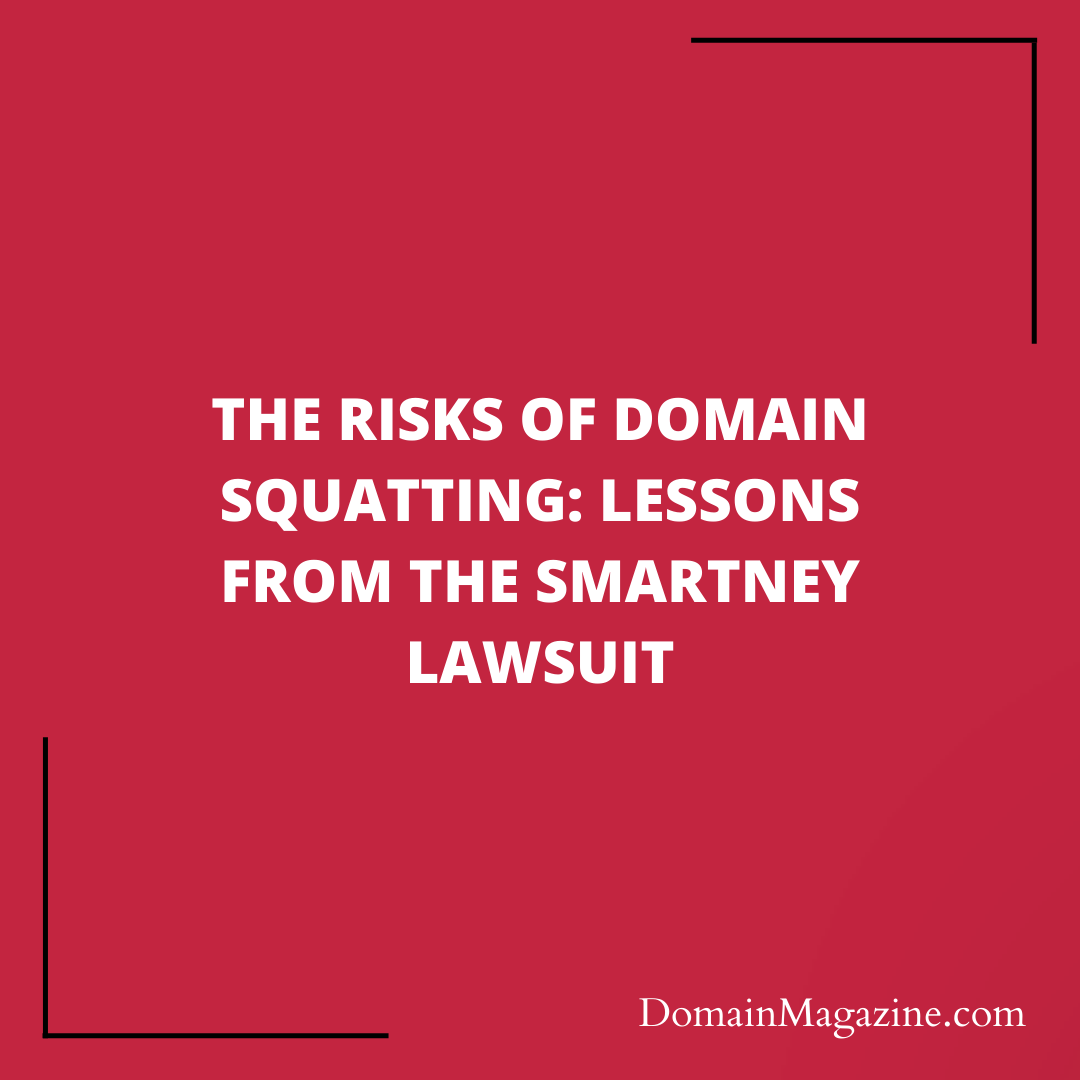In the digital world, domain names play a vital role in establishing an online presence and identity. However, some individuals or entities engage in unfair practices by registering domain names similar to established trademarks with the intention of profiting from their resale.
This article focuses on a recent legal dispute between Oney Bank’s subsidiary, Smartney, and a respondent, Liu Fen, involving the domain name Smartney.co. Let’s delve into the case to understand the implications of domain squatting and how it affects legitimate trademark owners.
Background

Oney Bank is a French bank known for consumer credit, electronic payments, and payment card management. In 2018, Oney Bank created its subsidiary, Smartney, which provides customers with convenient and technologically advanced borrowing options. To protect its brand, Smartney registered the SMARTNEY trademark both as a wordmark and a figurative mark with the EUIPO (European Union Intellectual Property Office).
The Dispute
On November 23, 2022, the respondent, Liu Fen, registered the domain name Smartney.co. Subsequently, the domain name resolved to a parking page, indicating it was up for sale. This action prompted Oney Bank to issue a cease and desist letter to Liu Fen on February 23, 2023, requesting the transfer of the domain name to them. Instead of complying, Liu Fen offered to sell the domain name to Oney Bank.
Suspension of Proceedings
During the legal proceedings, Liu Fen sent an informal email requesting a pause in the case to explore settlement talks. While the WIPO (World Intellectual Property Organization) allows for suspensions to facilitate negotiations, Oney Bank rejected the suspension request due to Liu Fen’s lack of cooperation. Consequently, the proceedings continued.
The Ruling
The panelist, Mr. Piotr Nowaczyk, reviewed the evidence presented in the case and found that Liu Fen did not use the domain name for a bona fide offering of goods or services, nor did he make legitimate non-commercial use of it. Instead, the domain name was being offered for sale, indicating a potential intention to profit from its resale. Traditionally, registering a domain name for resale would not necessarily be considered bad faith. However, specific circumstances in this case led the panel to rule in favor of Oney Bank.
The panel considered several factors, including the domain name’s complete incorporation of the SMARTNEY trademark, the trademark’s distinctiveness, Liu Fen’s lack of credible evidence for registering the domain, and the provision of questionable registrant contact details. These elements pointed to bad-faith registration with the intent to sell the domain name to Oney Bank.
Conclusion
The case of Smartney vs. Domain Squatting highlights the importance of protecting trademarks and domain names from abusive practices like domain squatting. Companies like Oney Bank invest time and resources in establishing their brand identities, and domain squatting can undermine their online presence and reputation. This ruling emphasizes the need for a fair and ethical approach to domain name registration, respecting the rights of legitimate trademark owners.
As technology continues to evolve, it becomes increasingly crucial for businesses to safeguard their intellectual property and take appropriate legal action against those attempting to exploit their brand recognition through unfair domain practices.
Read the dispute in detail here: https://www.wipo.int/amc/en/domains/decisions/pdf/2023/dco2023-0049.pdf


Join the Discussion